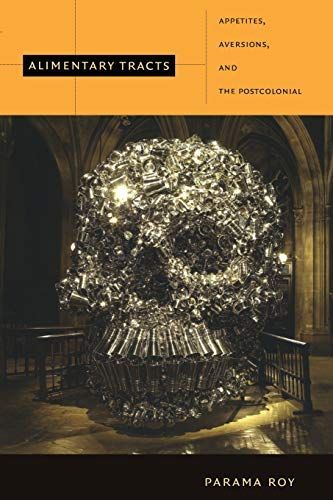
Alimentary Tracts Appetites, Aversions, and the Postcolonial
Alimentary Tractsestablishes questions of who eats and with whom, who starves and what is rejected as food as fundamental to empire, decolonization and globalization. Interpreting texts that have addressed cooking, dining, taste, hungers, excesses and aversions in South Asia and its diaspora since the mid-nineteenth century, Parama Roy relates historical events and figures to tropes of disgust, abstention, dearth and appetite. She analyzes the fears of pollution and deprivation conveyed in British accounts of the so-called Mutiny of 1857, complicates understanding of Mohandas K. Gandhi's vegetarianism and examines the "famine fictions" of Mahasweta Devi, who exposed the wrenching failures of the postcolonial state in her portrayals of the lack of access of the landless, low-caste and tribal poor of the Indian hinterlands to food and water. Turning from famine to abundance, Roy reflects on the writings, screen performances and iconic status of Madhur Jaffrey, the leading popular authority on Indian culinary arts in the United States and Great Britain. In many ways colonialism reconfigured the sensorium of colonizer and colonized, generating novel experiences of desire, taste and appetite and new technologies of the embodied self. For colonizers, Indian nationalists, diasporic persons, and others in the colonial and postcolonial world orders, the alimentary tract functioned as an important corporeal, psycho-affective, and ethicopolitical contact zone, staging questions of identification, desire, difference, and responsibility.